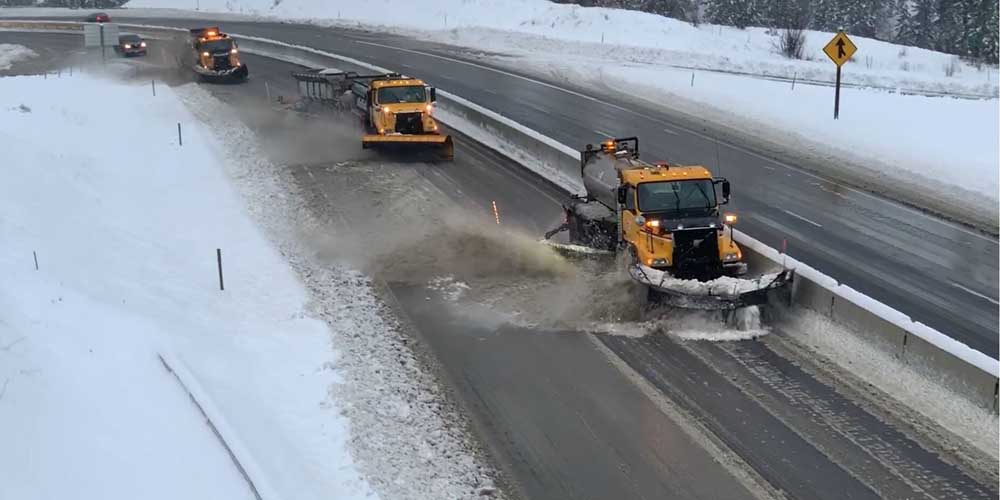New Oregon law could force Google and Facebook to pay for news — or pull it
Published 4:33 pm Tuesday, May 6, 2025

- Google and Facebook have long been main sources for readers for small and independent news organizations. But Facebook's parent company says it will stop that traffic if a bill in Salem becomes law. (Wikimedia commons)
A bill gaining traction in the Oregon Legislature could force tech giants like Google and Facebook to pay local media outlets for news articles shared on their platforms.
Senate Bill 686, introduced by Sen. Khanh Pham, D-Portland, cleared the Oregon Senate Committee on Rules this week and now heads to the full Senate for consideration. If passed into law, the bill would require major digital platforms to compensate newsrooms when they use or link to locally produced news.
Supporters of the bill say it would provide a much-needed safety net to Oregon newsrooms, which have seen advertising revenue stripped away by online advertisers, such as Google, Facebook and Instagram for years.
Trending
But critics say it could end up hurting more newsrooms than it helps, and point to issues in Canada as a warning sign of what could happen locally.
Addressing a broken market
The bill is modeled after similar efforts in Canada, Australia and California, where governments have sought to address the financial imbalance between local media and tech platforms, with limited success.
Under the proposal, a portion of the funds paid by tech companies would go to a new journalism consortium at the University of Oregon to support small news publishers, the remaining 90% of funds would go directly to newsrooms, based on how many journalists they employ. The money would come with strict requirements: at least 70% of each stipend must go to paying journalist salaries.
That money is badly needed, Pham said. News organizations have slashed staff and salaries in an effort to stay in business. That, in turn, has a big impact on the communities they write about.
“You feel it in the loss of coverage, in the loss of investigative journalism,” Pham said. “I’ve heard of some papers that don’t accept ‘letters to the editor’ anymore, because there’s nobody to take them in. That’s our shared public space.”
Laurie Hieb, executive director of the Oregon Newspaper Publishers Association, said her organization is “all in” on the bill.
Trending
“If we don’t do something, who will?” she said. “Google is making money off of our articles and our work without any compensation.”
Pushback from tech platforms
Tech companies, particularly Meta, have fiercely opposed similar legislation elsewhere.
When Canada passed a similar law in 2023, Meta responded by banning news entirely, blocking any news content from appearing on Facebook and Instagram in the country — cutting off a major source of readers for many outlets.
Overnight, web traffic to Canadian news sites dropped 58%, according to the Media Ecosystem Observatory.
Taylor Owen, director of the Centre for Media, Technology and Democracy in Canada, said 11 million links a day disappeared.
“That’s a big drop in the consumption of journalism,” he said. “States that do this are taking a huge risk.”
In Canada, newsrooms that relied on social media to draw in readers, particularly small and independent outlets, took a heavy blow. Some closed down, Owens said, and the entire Canadian media landscape has had to find new ways to bring in readership that doesn’t rely on social media.
Social media companies like Meta once encouraged newsrooms to use their platforms to build an audience, Owens said, but after the 2016 U.S. presidential election, which was marred with accusations of misinformation on the platforms, tech companies began to rethink their desire to promote news.
“When Facebook says news is not a value to them commercially, they’re right,” Owens said. “… But turning off the news after you’ve made everyone dependent on your platform for all of their needs? That’s a problem.”
Could the same thing happen here?
Officials for the tech giant have said that, given the choice between paying newsrooms or banning links, they’ll choose the latter if Oregon’s bill becomes law.
“If faced with legislation that requires us to pay for news content that publishers voluntarily post and is not the reason most people come to Facebook and Instagram, we will be forced to make the same business decision in Oregon as we did in Canada and end news availability on these services,” Meta said in a statement.
Dan Sachs, Meta’s senior national director for state and local policy, wrote to Oregon lawmakers in April, arguing that Oregon’s bill is “based on a false premise” that social media companies should pay newsrooms. Publishers willingly post content on Meta platforms to increase their reach, he said, and Meta doesn’t proactively promote news links anymore.
Hieb, with the ONPA, said one company like Meta should not be able to control how an entire state engages with journalism.
“It’s shameful that that’s the situation that we’re all in right now,” she said.
Political and Legal Challenges
The Oregon bill has a growing list of supporters, particularly among Democrats, which hold supermajorities in the state House and Senate. Gov. Tina Kotek has indicated that she will sign the bill if passed, and many news outlets such as Oregon Public Broadcasting, have been supportive of the bill. Staff at this newspaper’s parent company have also testified in support of the proposal.
“In this moment, we’re seeing the impact on our communities when we lose local journalism,” said Pham. “We have a state stepping up to balance a market that has become fundamentally damaged by a monopoly. It’s really important that we take a legislative approach.”
Some critics, however, have voiced constitutional concerns. Christopher Allnatt of Oregon’s Office of Legislative Counsel said the bill would likely violate federal laws barring the government from taking private property for public use.
Rep. Mark Bonham, R-The Dalles, said the bill will result in legal challenges that taxpayers will have to pay.
“One of the fundamental things that we’ve done in the United States is to say that we’re not going to tax the internet,” Bonham said. “And yet here we are in the state of Oregon, the tip of the spear.”
Hieb and other supporters are urging public engagement.
“If people are concerned about the Google and Facebook monopoly and throttling the news, they should definitely call their reps,” said Hieb.
Pham acknowledged the risk of backlash, but said saving Oregon newsrooms is important not just to readers, but to democracy.
“I have deep concerns about the state of our democracy,” Pham said. “This is one step in strengthening one of the pillars we need if we’re going to have a healthy democracy. This bill is the first real step toward restoring local journalism in Oregon.”
Owens, in Canada, said some positive outcomes have emerged from the 2023 law.
Last month, Canada collected $22 million from Google, which it distributed to 108 news organizations across the country.
“(Canadian publishers) said they wanted to even the playing field, and that’s a fair position to have as a publisher,” Owens said. “Now they get (monthly payments from Google). That’s not nothing, especially in an industry that’s in freefall. That’s not a bad thing at all, so long as they don’t depend on Facebook for their traffic.”







